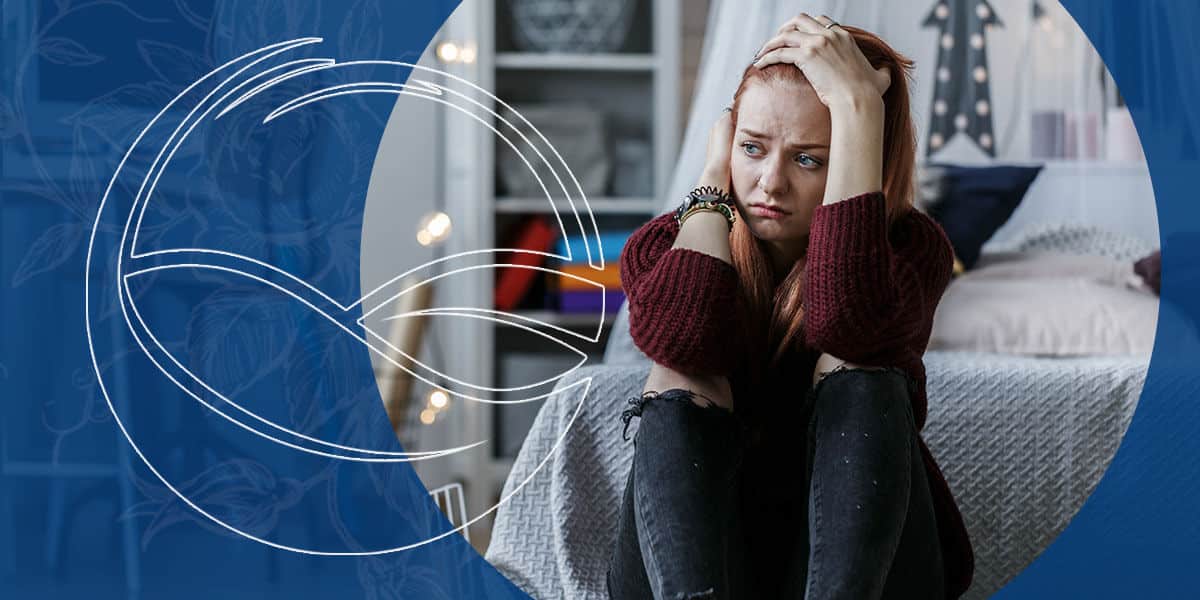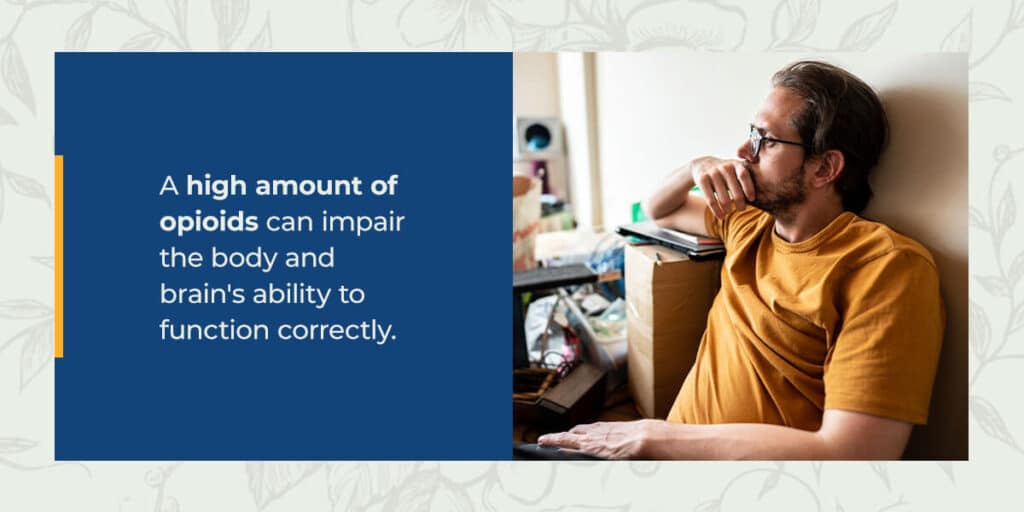

Since the 1990s, more than 645,000 people have died from both synthetic and commonly prescribed opioids. The Centers for Disease Control and Prevention (CDC) reports that 109,680 people died from opioid overdose in 2022. Despite this ongoing crisis, many people may not know how to identify a drug overdose or how to prevent one. If you or a loved one struggles with opioid addiction, the most important thing to remember is that recovery is possible.
With the right support and evidence-based treatment, you can conquer substance use dependency and keep yourself and your loved ones safe from lethal overdose. Use this comprehensive guide to recognize the signs of overdose and implement proactive measures to avoid life-threatening consequences.
Opioids, which are sometimes called opiates, are derived from the opium poppy plant. This class of drugs comes in many different forms, including prescription and illegal substances, that can cause addiction, including:
An opioid overdose can occur when an individual consumes an excessive amount of opioids or a combination of opioids and another substance or drug, such as alcohol or prescription medications. This combination can create toxic and life-threatening effects. Because opioids are highly addictive, users can develop a tolerance. Individuals with high tolerance levels may need to consume a higher dose to achieve the same effects, often leading to unintentional overdose.

A high amount of opioids can impair the body and brain’s ability to function correctly. This can sometimes cause slow breathing or a decrease in oxygen due to the drug’s sedating effect, leading to significant risk. Although not all overdoses are fatal, they can result in death if not treated immediately.
Many general overdose symptoms overlap with opioid overdoses. A person experiencing an opioid overdose or overmedication that can lead to an overdose may have the following signs:
Certain risk factors can make an individual more likely to experience a drug overdose. It’s important to know that you or a loved one may be at risk of an opioid overdose if you:
Opioid overdoses are preventable. Knowing these harm reduction strategies can save your life or your loved one’s life:
The most effective way to prevent a serious or fatal opioid overdose is to undergo addiction treatment. When it comes to opioid addiction, the longer you use, the higher your risk for overdoes gets. Addiction is a complex condition that creates unique obstacles for every individual it affects.
It’s normal for people to feel guilt, fear or shame about seeking help, even if they’ve come close to an overdose or experienced one. However, you are not alone. There are many dedicated, caring professionals waiting to help you on the road to recovery, no matter what challenges lie ahead.
Overcoming substance use disorder is challenging, but the right treatment program will help you reach your goals through understanding and a judgment-free environment. There are many different treatment strategies to help you overcome opioid addiction or dependence. Your decision to enter treatment for or inform a loved one about addiction recovery can improve your health, close relationships and overall quality of life.
Opioid addiction can have life-threatening consequences for you or someone you love. At Hope for Tomorrow, we know that seeking help is not easy. We’re here to help you or your loved one feel supported every step of the way through the recovery journey. We offer individualized treatment programs that cater to your specific needs and goals. Our compassionate experts provide various therapies, medication assistance and evidence-based treatment to help you overcome opioid addiction.
Most importantly, we strive to create a comfortable environment where you can feel supported without fear of judgment. If you or your loved one are ready to let us lift you up through the challenges of addiction recovery, contact us today.